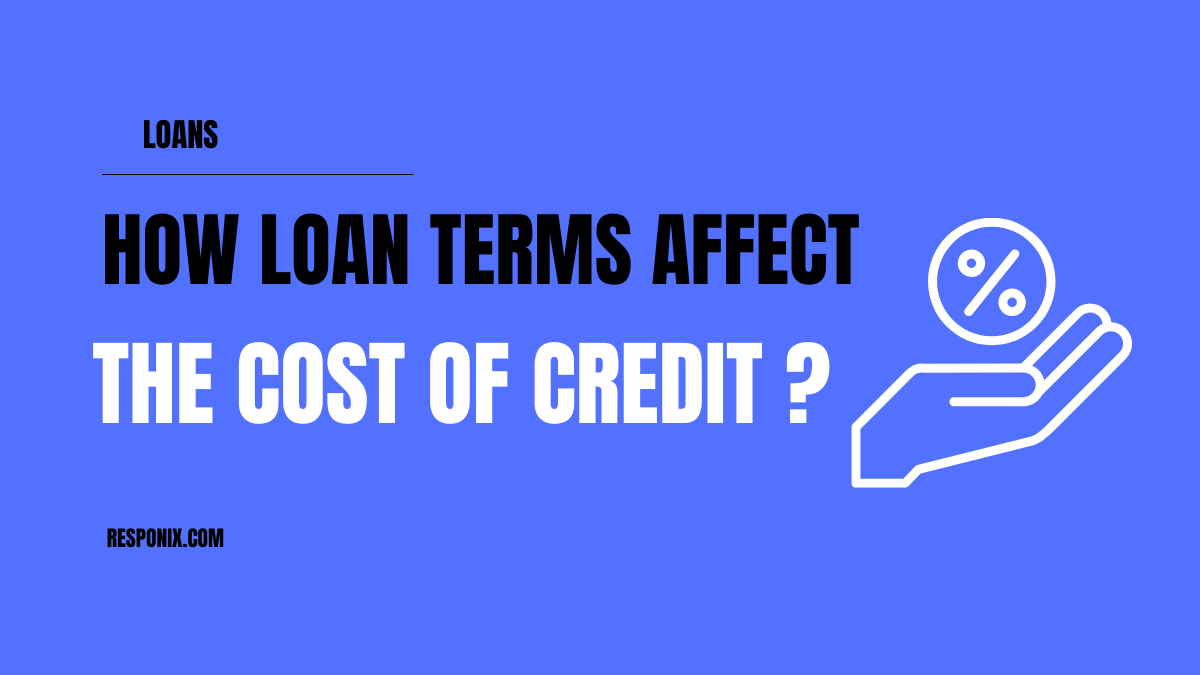Table of Contents
When taking out a loan, many borrowers focus solely on the interest rate. However, loan terms play a crucial role in determining the overall cost of credit. Factors such as the loan duration, interest rate type, repayment schedule, and additional fees can significantly impact the amount you pay over time. Understanding how these elements work together can help you make smarter financial decisions and avoid unnecessary debt burdens.
What Are Loan Terms?
Loan terms refer to the conditions agreed upon between a borrower and a lender, dictating how the loan must be repaid. These terms include:
- Loan amount – The total sum borrowed.
- Interest rate – The percentage charged for borrowing the money.
- Loan tenure – The repayment period, which can be short-term (a few months) or long-term (several years).
- Repayment schedule – Monthly, bi-weekly, or other structured payments.
- Fees and charges – Origination fees, late payment fees, prepayment penalties, and other costs.
Each of these factors influences the total amount you repay over the life of the loan.
How Loan Duration Impacts the Cost of Credit
Short-Term vs. Long-Term Loans
A critical factor affecting the cost of credit is the loan duration. Generally, shorter loan terms lead to lower total interest payments, while longer loan terms result in higher overall costs.
- Short-Term Loans (1-5 years):
- Higher monthly payments.
- Lower total interest paid over time.
- Faster repayment schedule.
- Long-Term Loans (10+ years):
- Lower monthly payments.
- Higher total interest paid over time.
- More manageable monthly expenses but costlier in the long run.
For example, if you take a $20,000 loan at a 6% interest rate:
| Loan Term | Monthly Payment | Total Interest Paid |
|---|---|---|
| 3 years | $608 | $1,891 |
| 5 years | $387 | $3,228 |
| 10 years | $222 | $6,613 |
As you can see, longer terms reduce monthly payments but increase total interest costs.
Fixed vs. Variable Interest Rates: Which Costs More?
Interest rates significantly impact the total repayment amount. Loans typically have either fixed or variable interest rates:
- Fixed Interest Rate Loans:
- Interest rate remains constant throughout the loan term.
- Predictable monthly payments.
- May have slightly higher initial rates compared to variable-rate loans.
- Variable Interest Rate Loans:
- Interest rate fluctuates based on market conditions.
- Lower initial rates but uncertain future costs.
- Potential for lower costs if interest rates decline, but can become expensive if rates increase.
For long-term loans, fixed rates provide stability, whereas variable rates offer potential cost savings but with higher risk.
The Role of Loan Fees in the Cost of Credit
Beyond interest rates, various fees can increase the total cost of borrowing:
- Origination Fees – A one-time charge for processing the loan.
- Late Payment Fees – Charges incurred for missing payment deadlines.
- Prepayment Penalties – Fees for paying off a loan early (common in mortgages and auto loans).
- Annual Fees – Recurring charges on some types of loans, especially credit cards.
How to Reduce Loan Fees
- Compare lenders to find loans with lower origination fees.
- Choose lenders that don’t charge prepayment penalties.
- Automate payments to avoid late fees.
How Repayment Schedules Affect the Cost of Credit
Your repayment frequency also influences the total cost of the loan:
- Monthly Payments – Standard option; balances affordability and loan duration.
- Bi-Weekly Payments – Helps reduce total interest paid by making extra payments.
- Lump-Sum Payments – Paying extra toward the principal lowers interest costs over time.
Opting for bi-weekly payments on a mortgage or auto loan can help you pay off debt faster and save on interest.
How Credit Score Affects Loan Terms
Lenders determine interest rates based on credit scores. A higher credit score often results in better loan terms:
| Credit Score | Estimated Interest Rate |
|---|---|
| 750+ | 4-5% |
| 650-749 | 6-10% |
| 550-649 | 11-20% |
| Below 550 | 20%+ |
To improve your credit score:
- Pay bills on time.
- Keep credit utilization below 30%.
- Avoid opening too many new accounts.
- Regularly check your credit report for errors.
Tips to Minimize the Cost of Credit
1. Choose the Right Loan Term
If you can afford higher monthly payments, opt for a shorter loan term to save on interest.
2. Compare Lenders
Different financial institutions offer varying rates. Compare banks, credit unions, and online lenders.
3. Improve Your Credit Score
A higher credit score qualifies you for lower interest rates and better loan terms.
4. Make Extra Payments
Paying more than the minimum reduces the principal faster, cutting interest costs.
5. Watch Out for Hidden Fees
Read the fine print before signing a loan agreement to avoid unnecessary fees.
Conclusion
The cost of credit is influenced by several factors, including loan duration, interest rates, fees, and repayment schedules. By choosing the right loan terms, borrowers can reduce interest costs, avoid unnecessary fees, and repay their loans more efficiently. Understanding how loan terms affect the total repayment amount is essential for making informed financial decisions.


